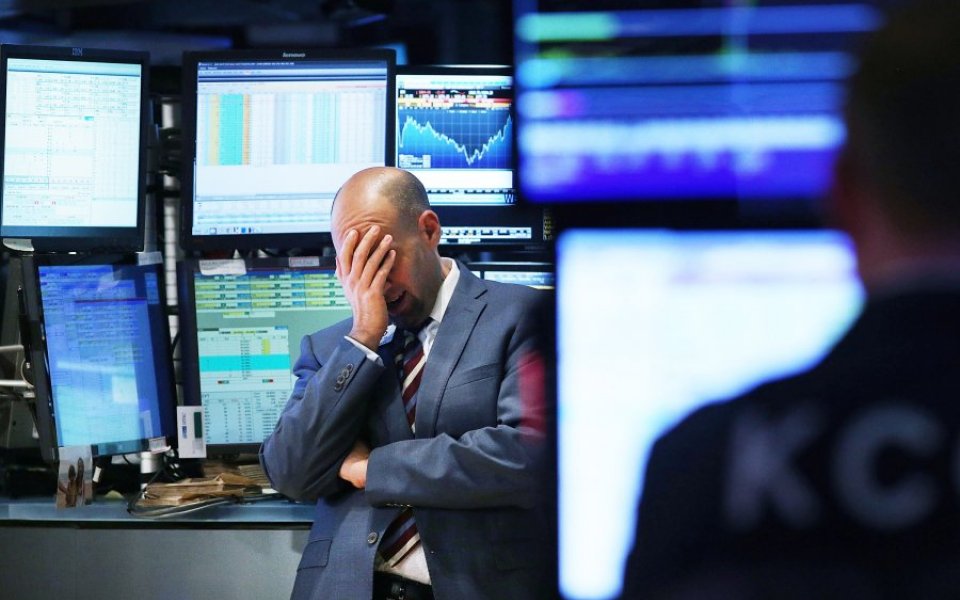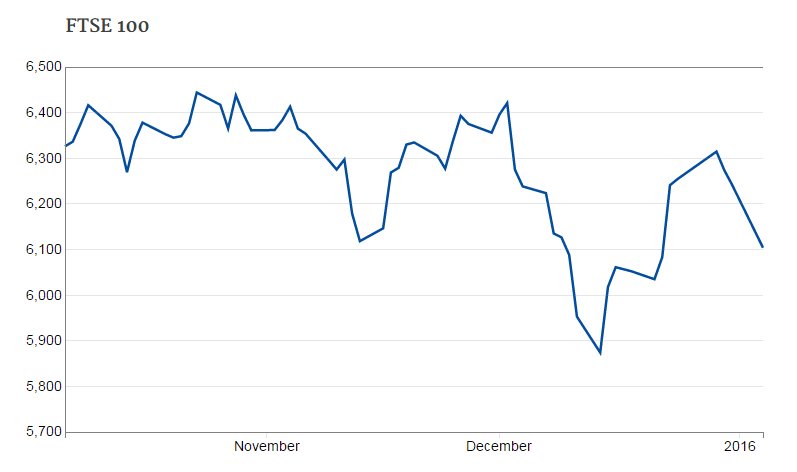Dow Jones suffers worst start to the year since 2008 – as more than £38bn is wiped off FTSE 100 thanks to China volatility and Middle Eastern uncertainty

Fears over China sent US stocks tumbling yesterday, with the Dow Jones Industrial Average down 467 points at its low for the day – headed for its worst first-day percentage drop since 1932.
The index fell by 1.58 per cent to 17,149. The Nasdaq dropped 2.08 per cent and the S&P 500 lost 2.35 per cent, giving both indexes their worst start to the year since 2001.
“There was the turmoil overnight overseas that kind of set the tone … (but) all of the negatives out there have been out there for a while,” said Michael O’Rourke, chief market strategist at US firm JonesTrading.
“The fact that we closed down on the year, the Fed tightened, it crystallised in investors’ minds that we’re not in the environment we were in throughout most of the recovery.”
Some £38bn was wiped off UK stocks as the FTSE 100 closed 2.4 per cent lower at just over 6,090 points – the second worst opening day in history, after 2000’s 3.8 per cent fall – as investors reacted to increased volatility in China.
Meanwhile, the pan-European Stoxx 600 finished 2.7 per cent lower, at 356 points.
“Miners were top fallers on the FTSE 100 with Anglo American down sharply tracking a steep fall in the price of industrial metals. The price of copper fell over three per cent,” said Jasper Lawler, analyst at CMC Markets.
[custom id=”119″]
The news came after trading was suspended on China’s blue-chip CSI300, which suffered its worst day in nine years, thanks to weak manufacturing data for the country.
“The decline almost wipes out all of the nine per cent gain made by investors in the Shanghai market in 2015 and comes after a reading of 48.2 for December in the Caixin Purchasing Managers’ Index,” said Russ Mould, investment director at AJ Bell.
“Meanwhile, Beijing fixed the value of its currency, the renminbi, below 6.50 to the dollar for the first time since 2012, raising fears China may look to export its way to growth, sending a wave of deflation around the world in the first place.
“In addition, today’s stumble shows the dangers of meddling with free markets, as some are attributing the fall to the imminent expiry of a ban on share sales by large investors that was introduced in August after the summer rout.”
[poll id=”5″]
Lawler added: “The respite enjoyed by metal prices and mining companies at the tail-end of December could be short-lived if China’s economy is entering a new weaker phase.
“Whether Chinese shares drop again on Tuesday may rest with the reaction, if any from Chinese authorities. An interest-rate cut would probably be best-received by markets but the People’s Bank of China may not want to pander to every weak moment in the stock market.
“Looking further out, a policy response of further devaluation of the yuan to boost manufacturing exports may be outright unfriendly towards international markets.”
